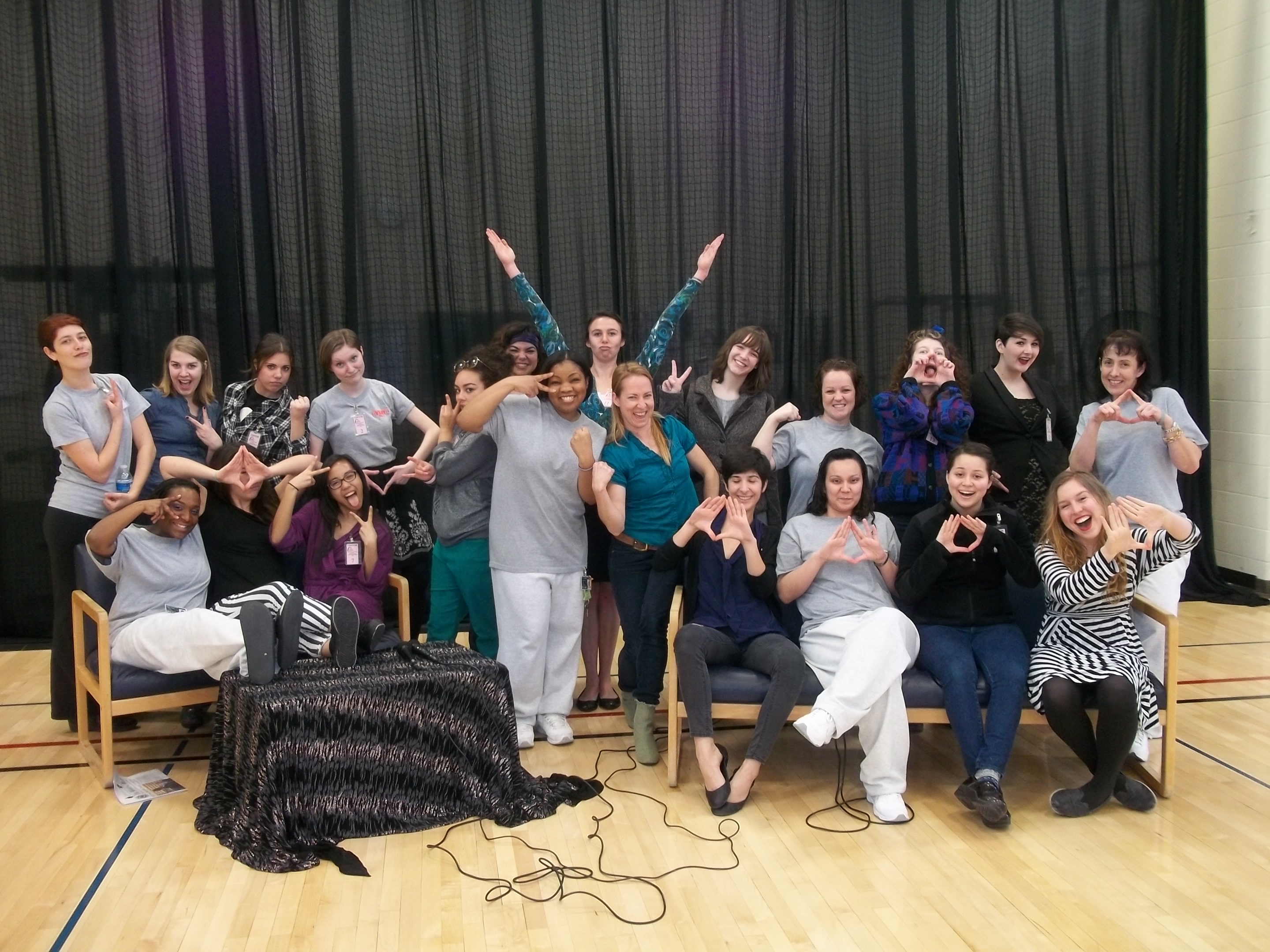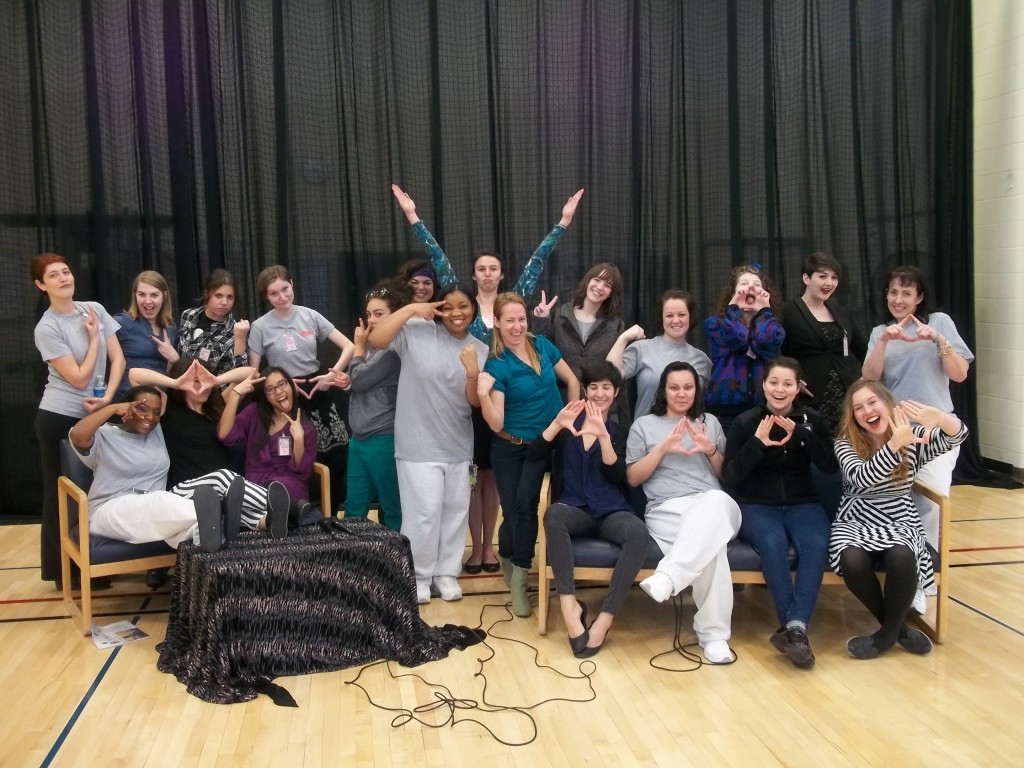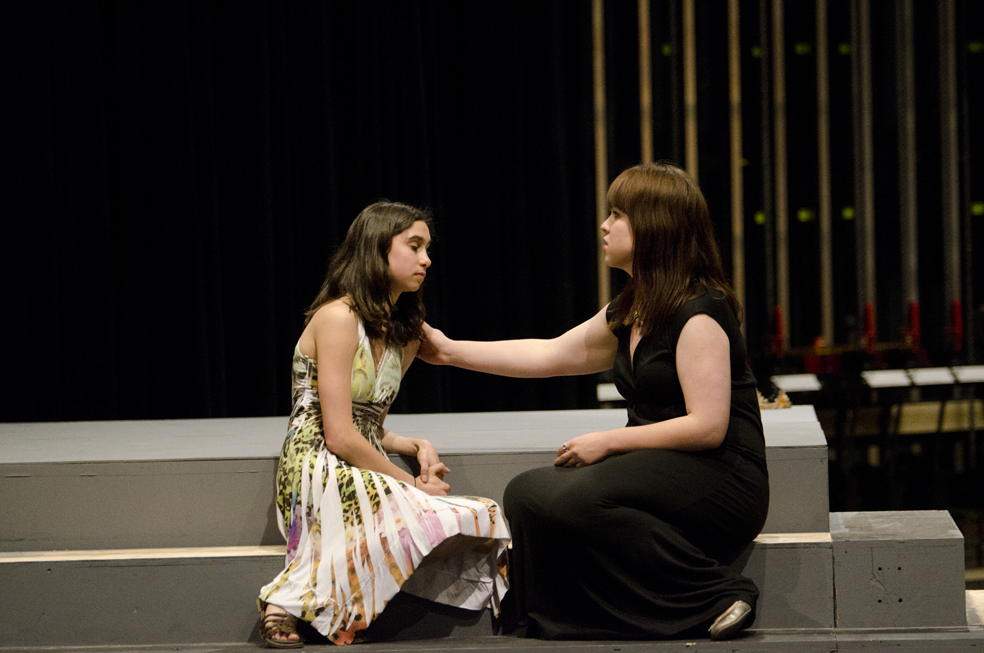
By Natalie DeFord, A&E Writer
Students perform “The Vagina Monologues” at Pacific Lutheran University annually, but this year’s team of actors did something special.
They performed at the Washington Corrections Center for Women (WCCW) March 15 after their adviser Jennifer Smith and Professor Lisa Marcus suggested it.

Marcus and Smith made initial contact with the prison, thinking the cast could perform there, which they suggested to the show’s three directors: sophomore Ingrid Clark and seniors Lia Lee and Lillian Ferraz.
“It was a great idea,” Ferraz said.
The show is intended to bring attention to domestic and sexual violence, which many of the women at the prison had experienced. Clark said many of these women had been abused.
“It seemed like a really daunting task because as far as I know, no one has ever done this before,” Clark said. “We didn’t know if they would let us into the prison to perform, because it seems like such a new idea.”
Arranging the performance took months of emailing back and forth and working with several organizations. They ended up working with Taryn Collis, who works with theater programs within the prison.
Ferraz said the WCCW was once the most violent prisons in Washington, regardless of gender, until a group of women changed the culture of the prison by forming an organization called ‘The Village,’ with groups and subcommittees focusing on environmentalism, advocacy and more — all aimed at making the prison a better place.
“Because of their hard work, the WCCW is no longer the most violent,” Ferraz said. She said that without these women, “The Vagina Monologues” relationship with the prison would have been far more limited.
After the performance was approved, the script had to be approved as well.
The assistant superintendent of the prison ended up censoring one of the monologues dealing with victims of wartime rape camps, which Clark said, was one of the heavier pieces.
Once the script was approved, they were all set to go.
The cast was not allowed to bring anything in with them except for bottled water. No cellphones. “When we got to the visitors entrance, we had to go through metal detectors and our jackets had to go through x-rays,” Clark said.
Cast member Anna Lose, a sophomore, described this performance as different from all the rest. They performed in a gym with little setup and no formal lighting. The lights were on and approximately 60 women in the audience were close and clearly visible to the performers.
“Looking right at them and delivering lines was really different from when you’re usually performing, and you can’t see them,” Loose said. “It was a very intimate experience.”
Loose said she had expected a more mixed response, but everyone loved the performance.
“I wasn’t sure what kind of response we would get,” Clark said, “but throughout the show the women were clapping and laughing and engaging with us.”
One woman in the audience found a piece called “Hair” especially impactful, because it was about learning to love and respect your own body without having to conform to the expectations of others.
During a different piece, about the rape of a woman, many were openly crying and comforting each other.
Ferraz said the show continues to affect cast members each time the issues are opened, so everyone in the room was similarly affected.
After the show, there was a discussion session between audience and cast members.
“They said wonderful things about being empowered,” Loose said. “It was just wonderful to hear from them and that they were interested in our experience performing it and how it empowered us. So that was really awesome.”
Clark said that the assistant superintendent was in the audience. “He got up and said this was such an incredible performance,” she said. “He admitted that he censored one of the pieces and apologized, saying the piece needed to be performed because it is important.”
That was one of Clark’s favorite moments, but overall she said it was amazing seeing the response from the women who came and watched. She said everyone who had participated and watched had been positively impacted and empowered as women.
If time had allowed, the group would have asked the women how they define feminism, what they think it is and what it looks like to them. Ferraz said that the women in the prison deserve to be a part of this conversation and deserve to have a voice.
“I think it’s a right that they have really, and along with that I think we need to remember that these voices are important,” Ferraz said.
Ferraz also said the event caused self-reflection and there was enthusiasm and need to grow on both ends as well as a want to create something long-lasting.
“Obviously it was really emotional, but it was just cool, and I can’t imagine it going any better than it did,” Loose said.
The assistant superintendent approved and said everyone loved the show and would like to see it again next year.
“I think it will continue to be valuable to each community,” Ferraz said. “Just for a few hours we created a community together and it was really beautiful and special and painfully sad and complicated. It was really ridiculous, the amount of barbed wire, and it was sad to leave and know they couldn’t.”
The team hopes this will be something that PLU continues to do.


















